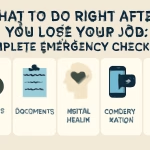Health insurance stops big medical bills. It helps you avoid debt and save money for things you want. This guide shows simple steps to find the best plan, cut costs, and build security for your future.
Why Health Insurance Matters
Health bills can be huge. One trip to the hospital can wipe out your savings. Good insurance keeps you safe. It pays most of your costs and lets you focus on getting well. With a plan in place, you can spend less money on surprise medical fees and more on your goals.
Know Your Main Options
You have several ways to get covered. Learn each to pick the best fit.
1. ACA Marketplace Plans
These plans follow rules set by law. You can sign up online. If your income is low, you may pay a smaller share.
2. Spouse’s Work Plan
If your partner has health insurance at their job, you can join their plan. It often costs less each month than a plan on your own.
3. Health Savings Account (HSA)
HSAs work with high-deductible plans. You put money in tax-free. Then you use it for doctor visits, tests, or medicine.
4. Short-Term Plans
These plans last a few months. They are low cost each month. They cover basic doctor visits and urgent care. They do not cover past health issues. Use them if you need a plan quickly, like between jobs.
5. COBRA
If you leave a job, COBRA lets you keep that job’s plan for up to 18 months. You pay the whole premium, so it can be pricey. Use it when you need time to pick a new, cheaper plan.
State Programs & Local Help
Each state adds its own programs. Always check your state’s offerings.
- Medicaid & CHIP
Free or low-cost care for families with low income.
- State Marketplaces
Compare plan options online. See if you qualify for help to lower your share of costs.
- Local Workshops & Hotlines
Many groups hold free sessions. They explain how to sign up and save.
Match Your Plan to Your Needs
Think about your health today and what might happen later.
- Do you take medicine now?
- Do you have regular doctor visits?
- Does your family have health issues?
Answer these to pick a plan that balances monthly costs with fees when you see a doctor.
Break Down Plan Costs
Plans have many fees. Check each before you choose.
- Premiums are your monthly bill.
- Deductibles are what you pay before insurance helps.
- Copays are fixed fees for each visit or service.
- Coinsurance is a share (like 20%) you pay after your deductible.
- Out-of-Pocket Maximum is the most you pay in a year. After that, insurance pays 100%.
Choose a plan with fees you can afford even when you need care.
Save with Free & Low-Cost Care
Many preventive services cost you nothing. Use them to stay healthy.
- Annual Checkups
- Vaccines
- Health Screenings
These find issues early, so treatment is simple and cheap.
Build an Emergency Health Fund
Set aside money just for medical surprises. Aim for 3–6 months of living costs. Use a separate savings account. Only dip into it for true emergencies, like a sudden hospital stay.
Invest for Healthcare
Saving in a bank may not beat rising costs. Try these:
- HSAs for tax-free health savings.
- Low-Risk Bonds for steady, safe returns.
- Index Funds to grow your health fund over time.
- Health-Focused Accounts that blend HSAs with investments.
Review your choices each year. Shift money if needed to keep growing.
Use Workplace Perks
Many employers help with health costs:
- Discounts on your premiums for meeting health goals.
- Free wellness programs or fitness classes.
- Onsite clinics that cost less than outside doctor visits.
Take full advantage to cut your share of the bill.
Consider Extra Plans
Your main plan may not cover everything. Look into add-ons for:
- Dental care like cleanings and fillings.
- Vision care for eye exams, glasses, or contacts.
- Accident Insurance for sudden injuries.
These help you avoid surprise bills for routine services.
Plan for Long-Term Care
As you age, you may need more help. Think about:
- Long-Term Care Insurance to cover nursing homes or home aides.
- Life Insurance Riders that add care benefits.
- Dedicated Savings for future care costs.
Include these in your overall plan so you can age safely without using all your savings.
Factor in Retirement Costs
Health bills usually rise with age. Add them to your retirement budget:
- Estimate your Medicare or private plan premiums.
- Check deductibles and copays for senior coverage.
- Expect costs to go up a little each year.
Save early so you don’t drain your nest egg when you retire.
Review and Update Annually
Health plans and rules change each year. Set a reminder to:
- Compare new plan options during open enrollment.
- Update your budget for new costs.
- Check for new state or employer benefits.
Regular reviews keep your coverage strong and your costs low.
Quick Action Steps
- List Your Needs: Write down your health issues and medicine.
- Compare Plans: Use online tools to see costs and coverage.
- Save Money: Open an HSA and start an emergency fund.
- Use Free Care: Get yearly checkups and vaccines at no cost.
- Review Yearly: Adjust your plan as needed for changes.
Start Today
Finding the right health plan may take time. But every step brings you closer to peace of mind and financial freedom. Follow these simple steps now. Enjoy better health and stronger savings—one smart choice at a time.
This guide helps you find and use health insurance. It shows easy tips to save money and protect your future.





